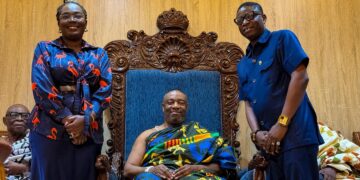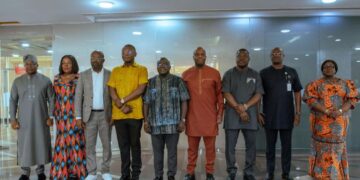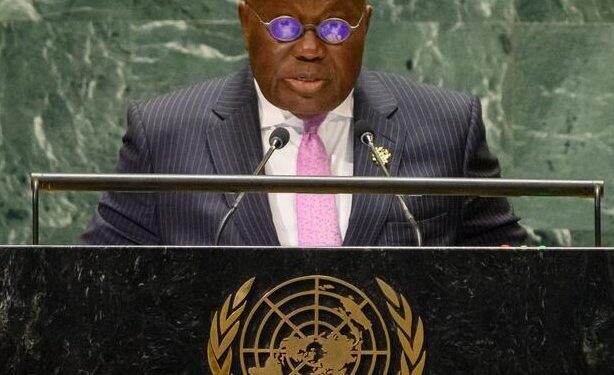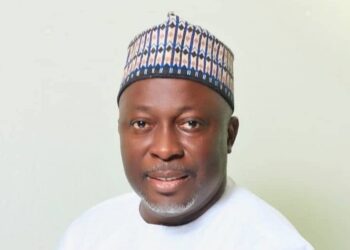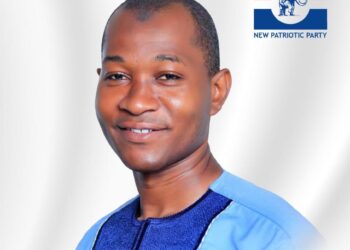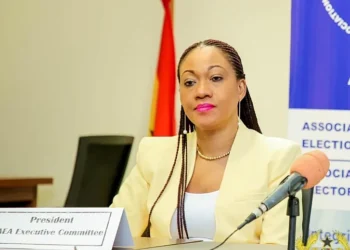President Akufo-Addo has made a clarion call on world leaders to take immediate steps to reform the United Nations Security Council (UNSC) noting that the current state of the Security Council does not reflect the realities of the world we live in today.
The Security Council, which is the United Nations’ (UN) principal crisis management body, according to President Akufo-Addo, is empowered to impose binding obligations on the 193 UN member states to maintain peace. However, the current structure of the Council has made the world unsafe and is skewed negatively against the African continent.
UNSC structure
The Security Council’s five permanent and ten elected members meet regularly to assess threats to international security, including civil wars, natural disasters, arms proliferation, and terrorism.
Structurally, the Security Council has remained largely unchanged since its founding in 1946, stirring debate among members about the need for reforms.
In recent years, members’ competing interests have often stymied the Security Council’s ability to respond to major global conflicts and crises, including the COVID-19 pandemic, Russia’s annexation of Crimea and subsequent invasion of Ukraine, and the war between Israel and Palestinian militant group Hamas.
The Security Council has five permanent members—the United States, China, France, Russia, and the United Kingdom—collectively known as the P5. Any one of them can veto a resolution. The Security Council’s ten elected members, who serve two-year, non-consecutive terms, are not afforded veto power.
Urgent reforms
Addressing the plenary meeting of the Summit of the Future (Multilateral Solutions for a Better Tomorrow) at the United Nations General Assembly Hall on Sunday, 22 September 2024, President Akufo-Addo said the Security Council has an unjust structure that ought to change.
“This leads me to a critical issue, the reform of the United Nations Security Council, the body charged with the maintenance of international peace and security. In its current form, the Council does not reflect the realities of today’s world. It remains in the outdated post-Second World War relic with Africa, the continent of 1.4 billion people, grossly underrepresented
“We cannot speak of multilateralism when the structures of global governance are rooted in unjust and unequal order. The time for half-measures is over, all reforms are needed to ensure that all nation, large or small, rich or poor, has an equal voice at the table. Only then can we achieve a fair and inclusive system of governance,” President Akufo-Addo remarked.
“History would judge us not by our words but by our actions. The world is watching, the future is watching. We cannot be the generation that stood by as the world burned, while inequality widened and promises of justice went unfulfilled. That is why Ghana supports fully the Pact of the Future and its supporting documents,” Akufo-Addo further remarked.
Global economic order
Touching on the current global economic order, President Akufo-Addo observed that the same is unsustainable, and it has become immoral. He indicated that it is time to build a new global economic order that will be all-encompassing and equitable.
“We are told to adapt and be resilient but how does one adapt to famine and build resilience when a farmer cannot predict the seasons? Africa cannot continue to pay for a crisis it did not create. We demand fairness, not charity. Climate justice requires an economic system that works for everyone not just the privileged few.
“The vast power between the rich and poor should be a sustained stain on our collective conscience. Over 700 million people, that is 8.75 percent of the world population still live in extreme poverty, deprived of basic human rights, education, food, health care, housing, and the dignity of work,” President Akufo-Addo said.
“The pandemic exacerbated this inequality pushing millions more into poverty while the wealth of the rich soared. This is unsustainable and it is immoral. We must build a new global economic order, one that promotes inclusivity and equity for all. The multilateral system, especially, the United Nations, should be at the forefront of this effort,” Akufo-Addo added.
Pact for the Future
World leaders including President Akufo-Addo at the meeting today, Sunday, 22 September 2024, adopted the Pact for the Future that includes a Global Digital Compact and a Declaration on Future Generations. The Pact is the culmination of an inclusive, years-long process to adapt international cooperation to the realities of today and the challenges of tomorrow.
The most wide-ranging international agreement in many years, covering entirely new areas as well as issues on which agreement has not been possible in decades, the Pact aims above all to ensure that international institutions can deliver in the face of a world that has changed dramatically since they were created.
Overall, the agreement of the Pact is a strong statement of countries’ commitment to the United Nations, the international system, and international law. Leaders set out a clear vision of an international system that can deliver on its promises, is more representative of today’s world, and draws on the energy and expertise of governments, civil society, and other key partners.
“The Pact for the Future, the Global Digital Compact, and the Declaration on Future Generations open the door to new opportunities and untapped possibilities,” said Secretary-General António Guterres during his remarks at the opening of the Summit of the Future. The President of the General Assembly noted that the Pact would “lay the foundations for a sustainable, just, and peaceful global order – for all peoples and nations.”
The Pact covers a broad range of issues including peace and security, sustainable development, climate change, digital cooperation, human rights, gender, youth and future generations, and the transformation of global governance.

